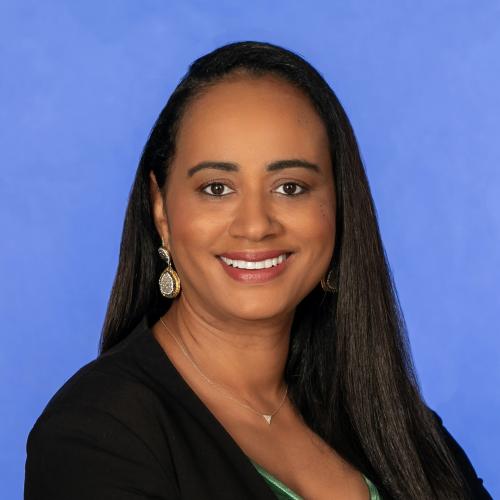United Nations 67th Session of the Commission on the Status of Women
The Minister of Social Development and Seniors with responsibility for Gender Affairs attended the United Nations Sixty-Seventh Session of the Commission on the Status of Women. The theme of the 67th Session was: “Innovation and technological change, and education in the digital age for achieving gender equality and the empowerment of all women and girls.”
The Commission on the Status of Women is the second largest annual gathering in the calendar of the United Nations. It carries great significance in that it offers a single opportunity for world representatives to come together and speak about the progress made and challenges experienced to achieve the much-desired gender equality and empowerment for women and girls. The CSW also provides a platform for thousands of women, feminists, advocates, academics, and gender equality experts from Government and civil society, to share experiences, exchange technical knowledge, establish dialogue about best practices, lessons learnt, and solutions that will promote and empower women and girls globally. Over the course of the two-week period, more than two hundred contributors representing Africa, Asia, the Pacific, the Caribbean, Europe, the Middle East and the United States made presentations during the CSW meetings.
Ministers of Gender Affairs, Human Rights, Social Development, etc. made presentations on the work implemented in their respective nations to mitigate gender inequality and close the gender gap. They emphasized and underscored many recurring themes reflecting gender inequality, which included:
- Men outnumbered women in innovation and technology industries;
- Young girls were less involved in digital technology;
- Introduction to digital technology must occur at an early age;
- Gender-based violence is rooted in gender-based inequality;
- Online gender-based violence is a growing threat to women and girls;
- Cyberbullying, harassment, hate speech against women and girls has increased significantly;
- Online space needs to be a safer environment for women and girls;
- Men and boys should be included in strategies to help protect the rights of women and girls;
- Gender pay gaps and harassment with linkage to low literacy and low income and older women; and,
- Women’s economic empowerment in retirement with the recognition of gender inequalities in pensions
There were parallel side events held in the form of panel and Q & A discussions and hosted by different UN member countries attended by the Minister which included:
• Gender-Based Violence and Technology: Risks, Opportunities, Challenges hosted by Ireland and The Irish Consortium on Gender-Based Violence;
• Amplifying Gender Sensitive Approaches: Male Engagement and Inclusion in Preventing Violence Against Women and Girls hosted by Kenya, the African Union, and UNFPA (UN Population Fund);
• Rewiring the Network: Digital Education and Skills for Girls and Women Empowerment hosted by Italy, UNESCO, UNICEF and the Group of Friends for Education and Lifelong Learning, in collaboration with UN Women; and,
• Preventing and Addressing Technology Facilitated Gender-Based Violence - Evidence and Best Practice hosted by Lord Ahmad, UK Permanent Mission to the United Nations.
